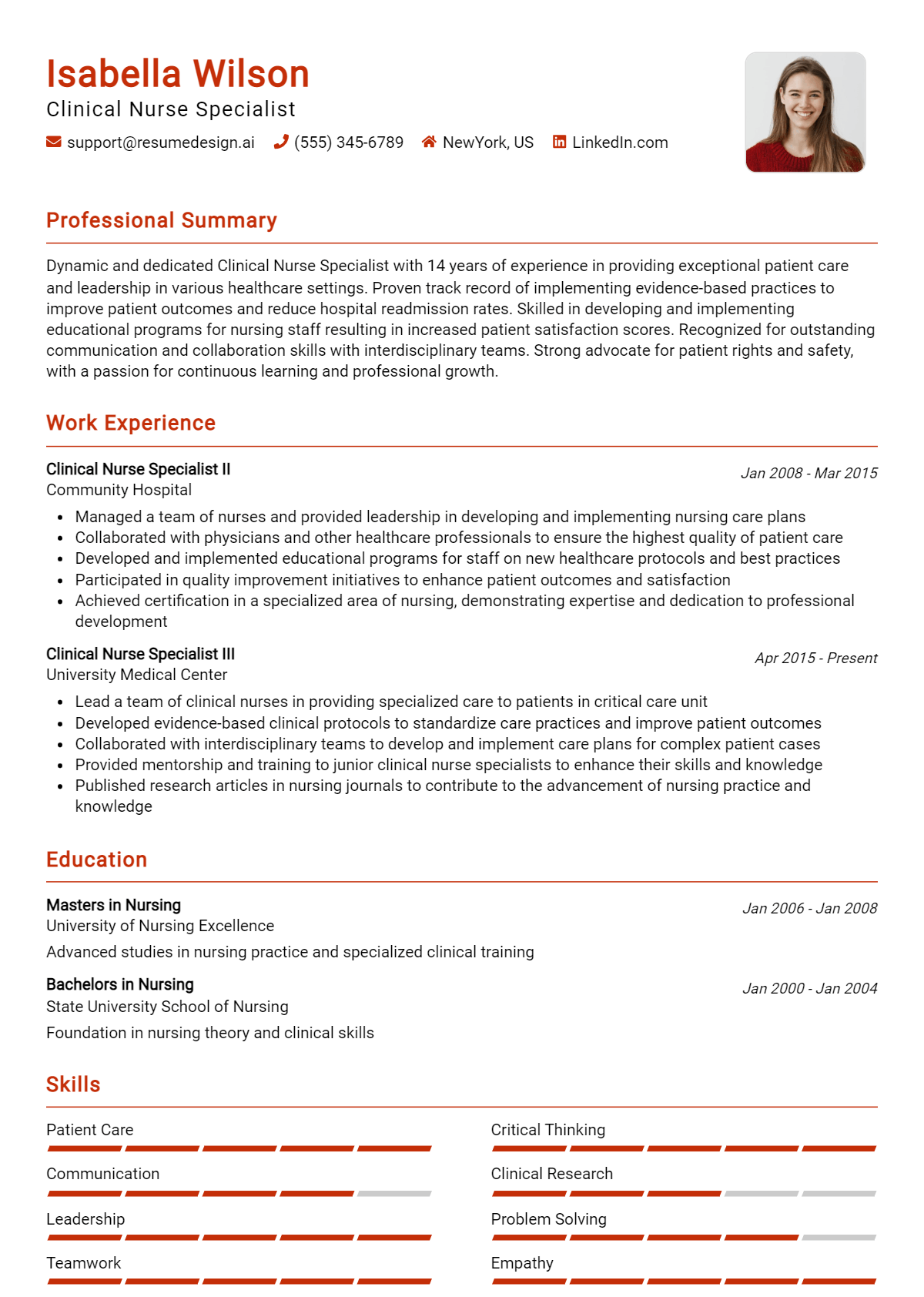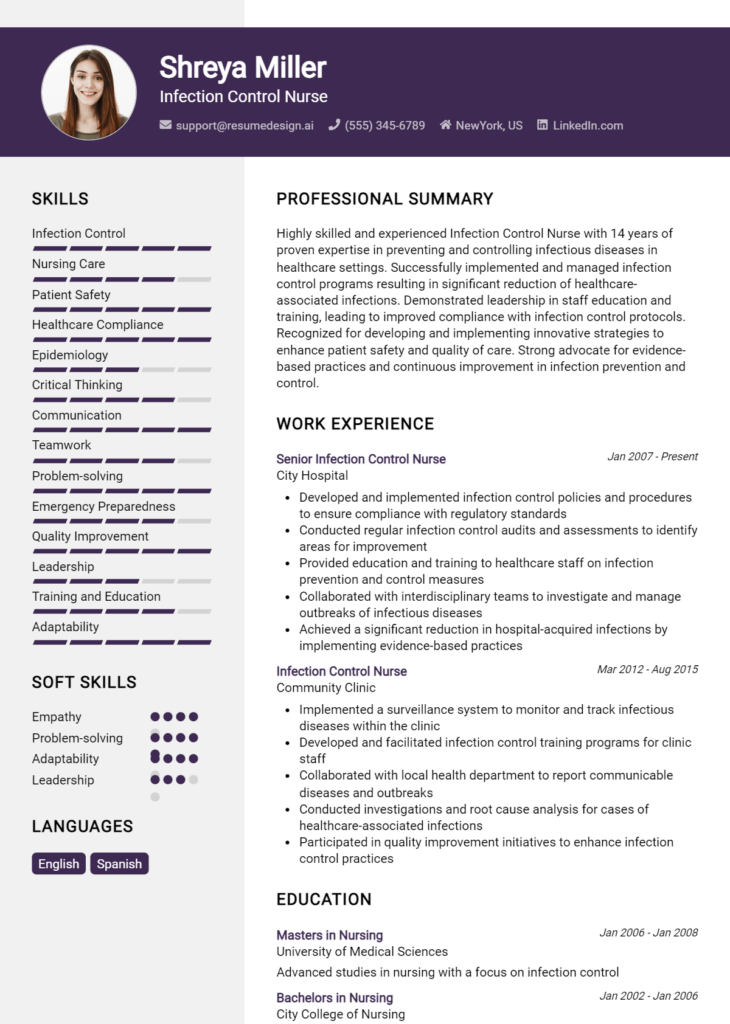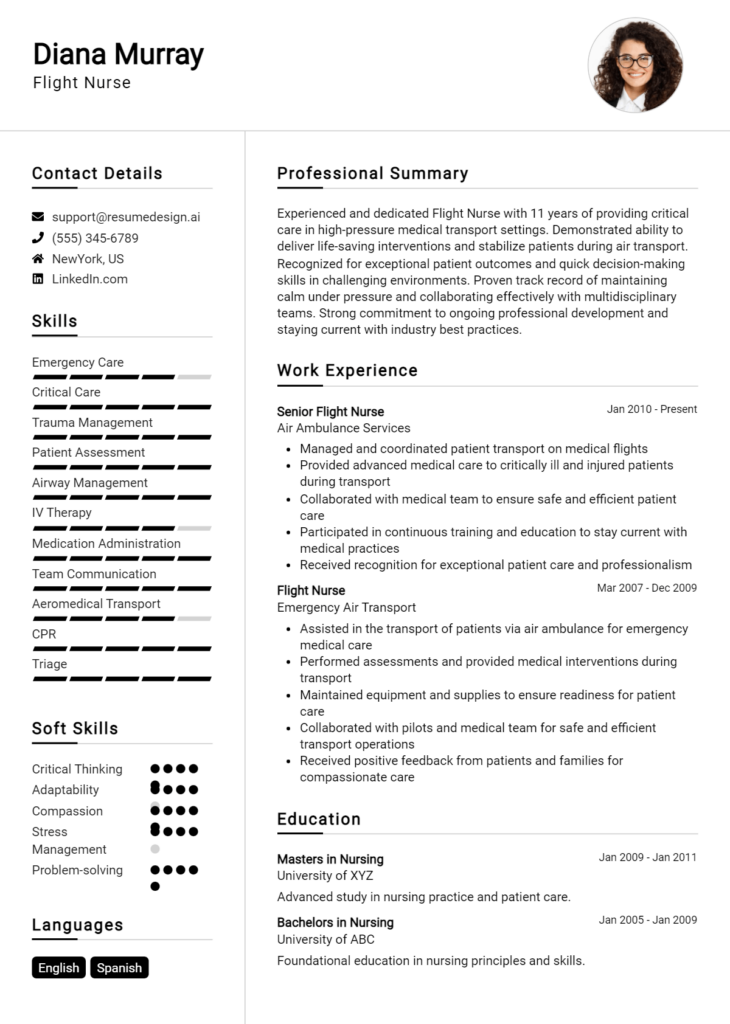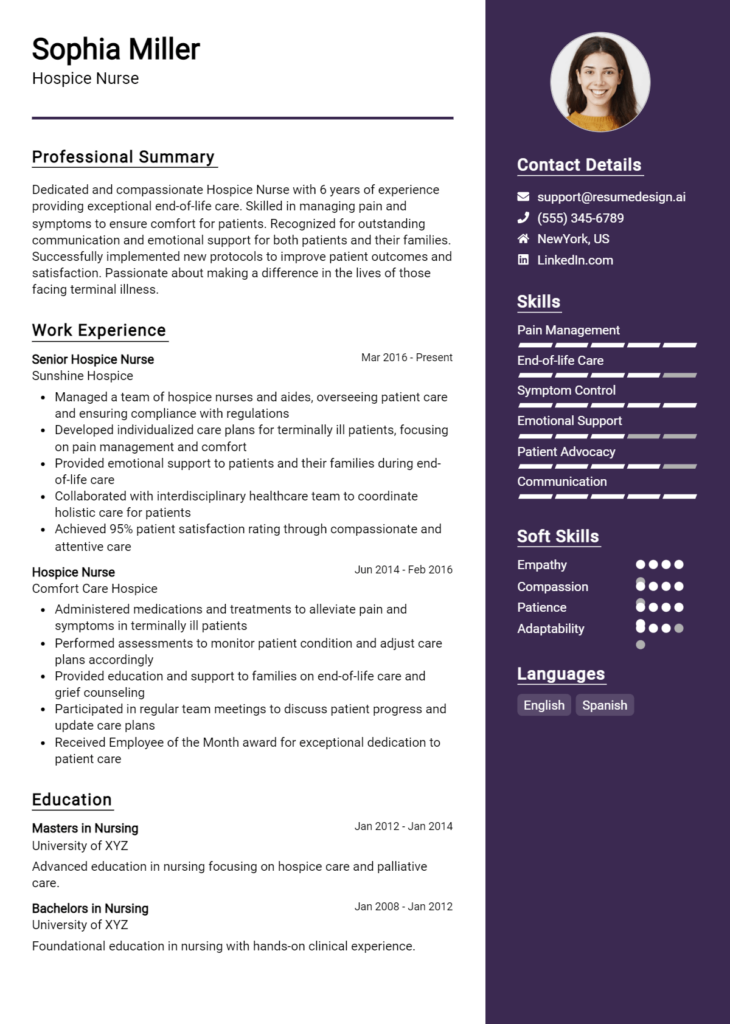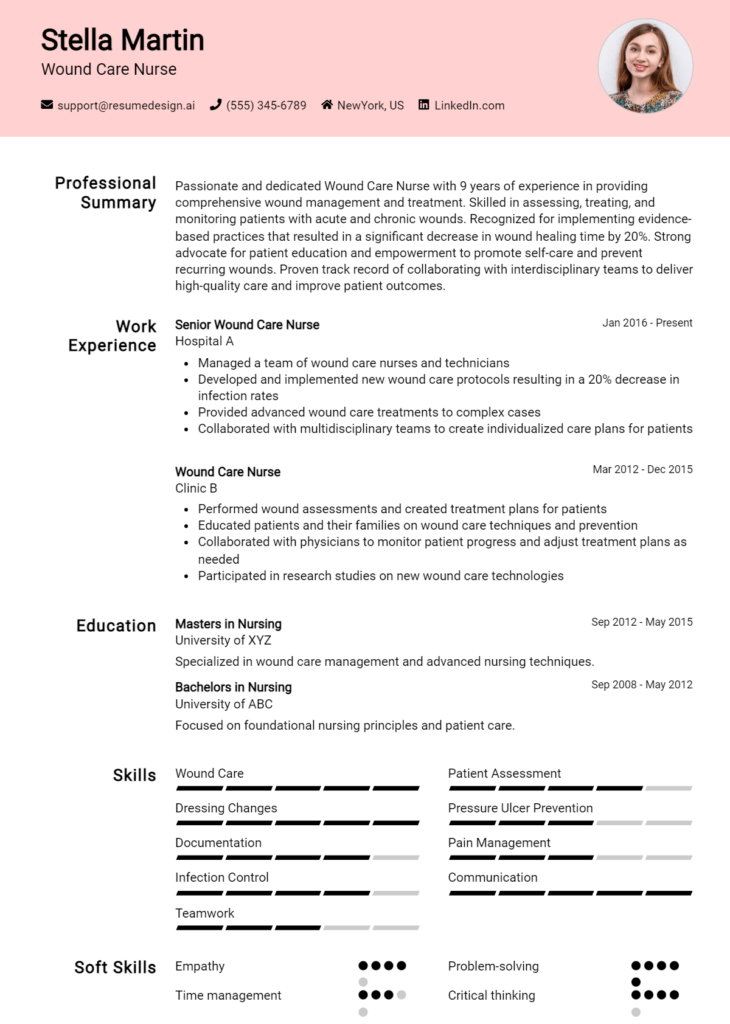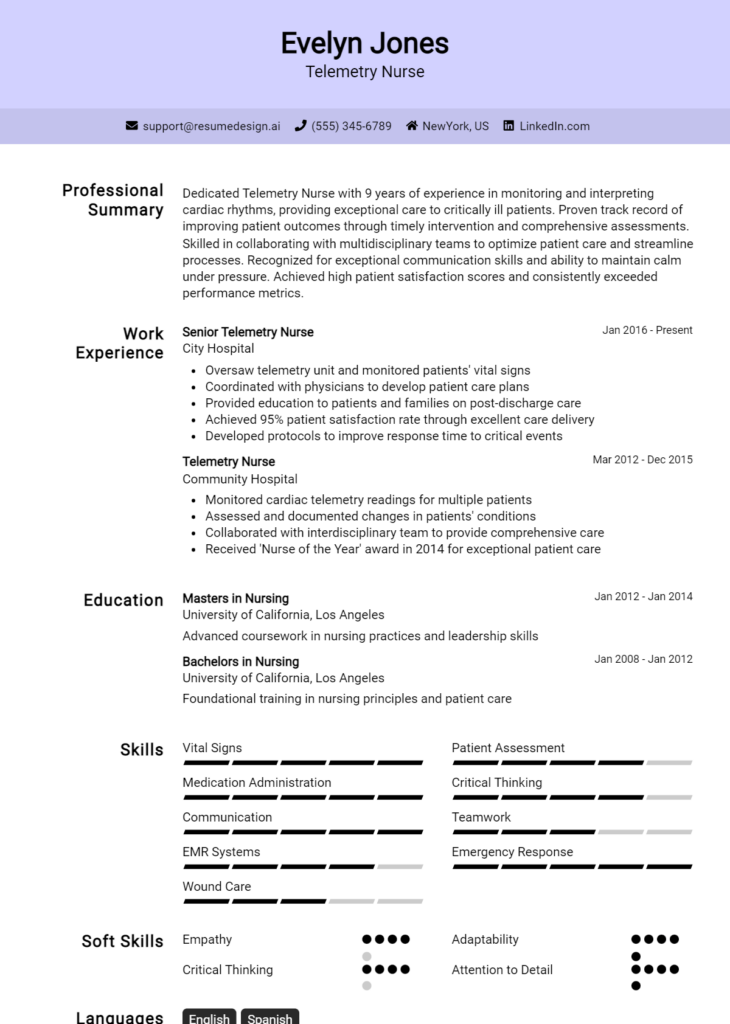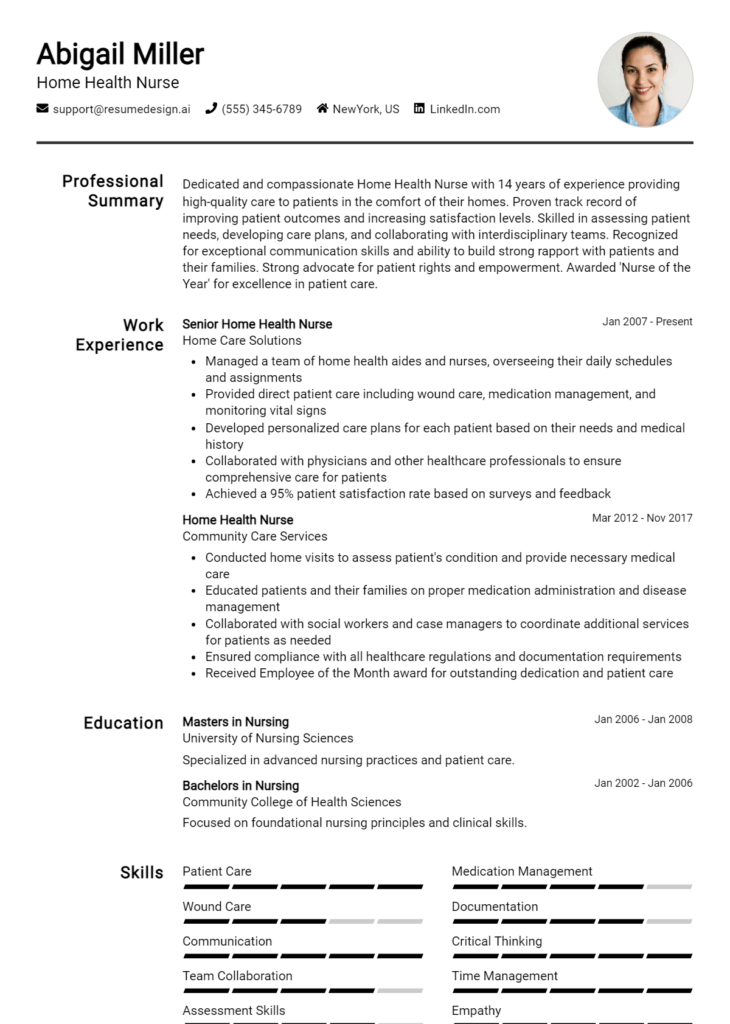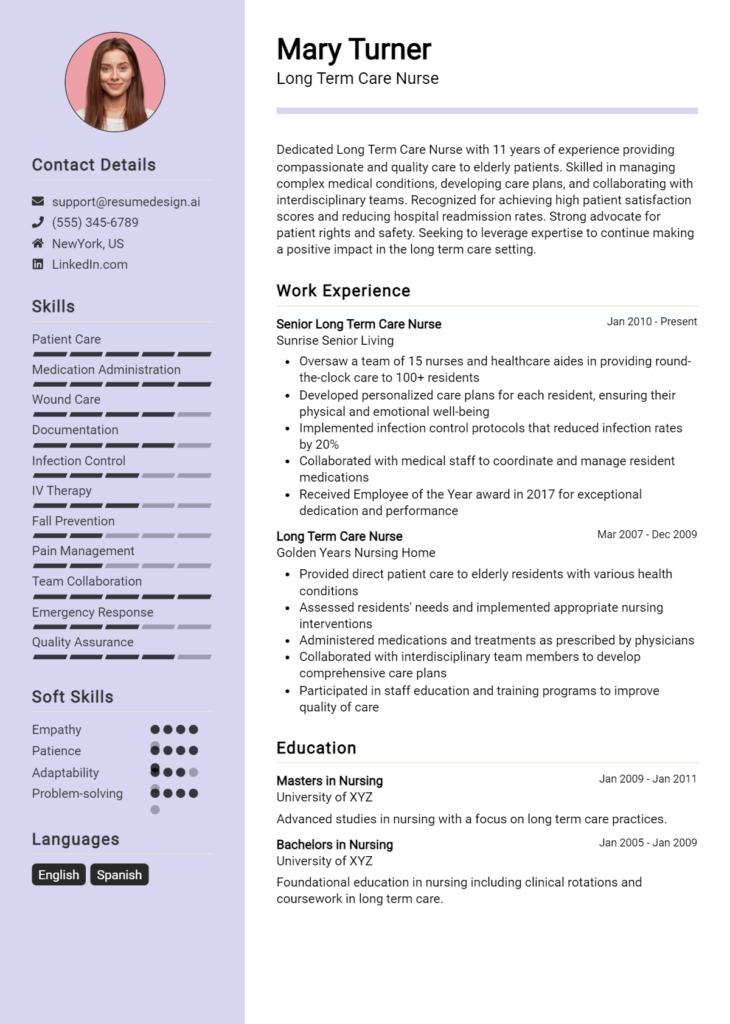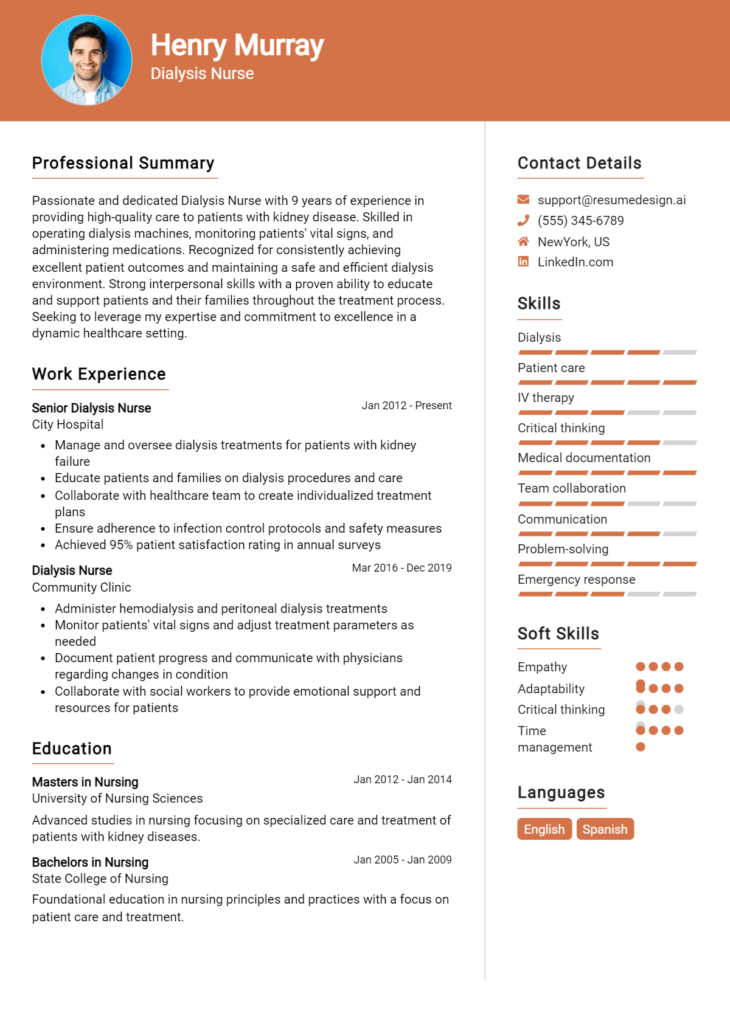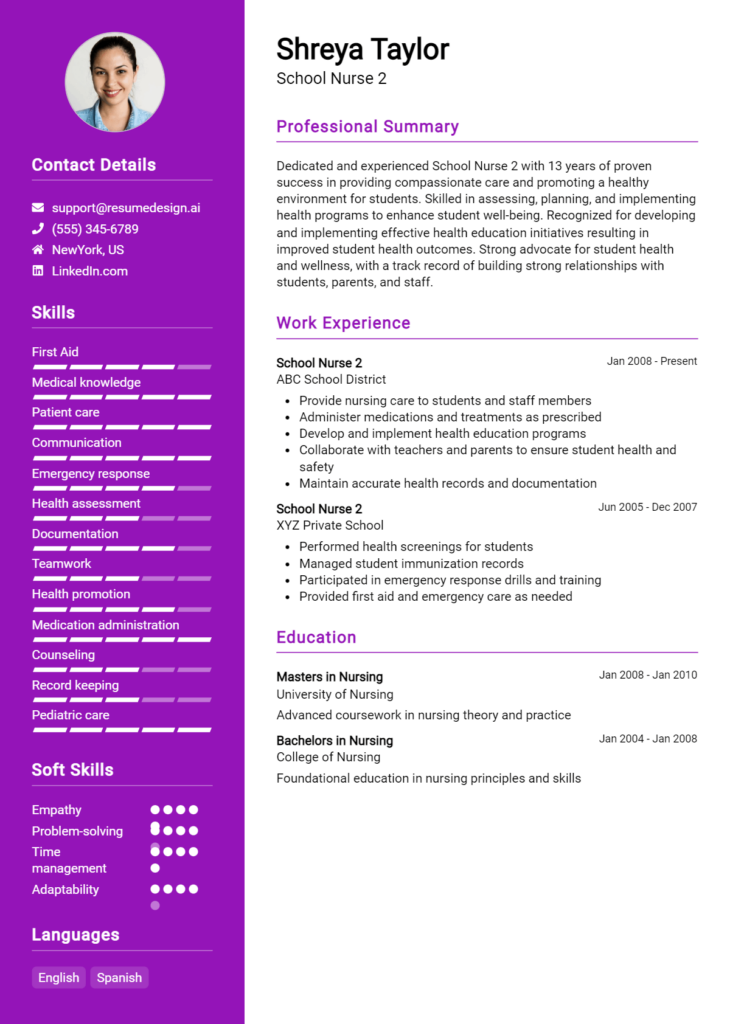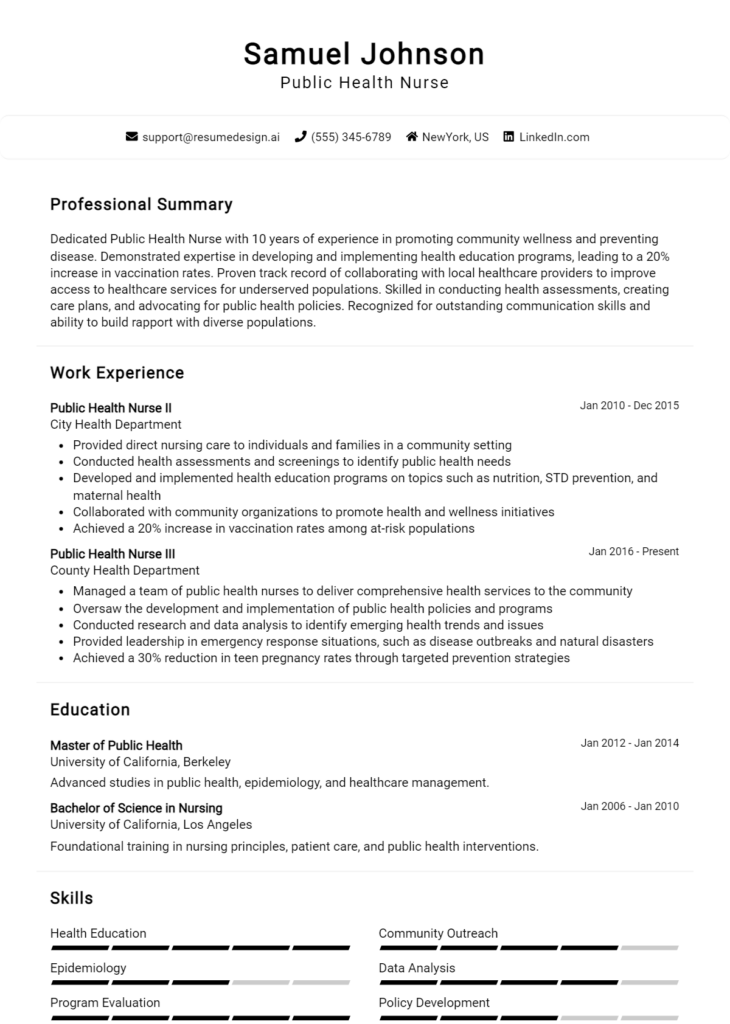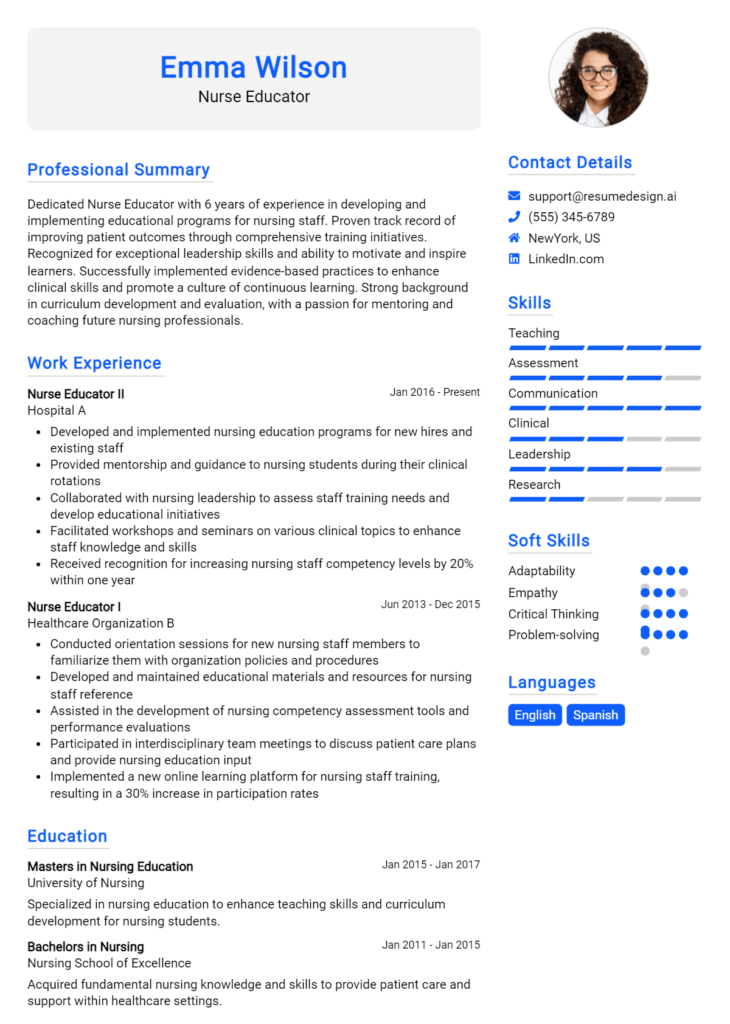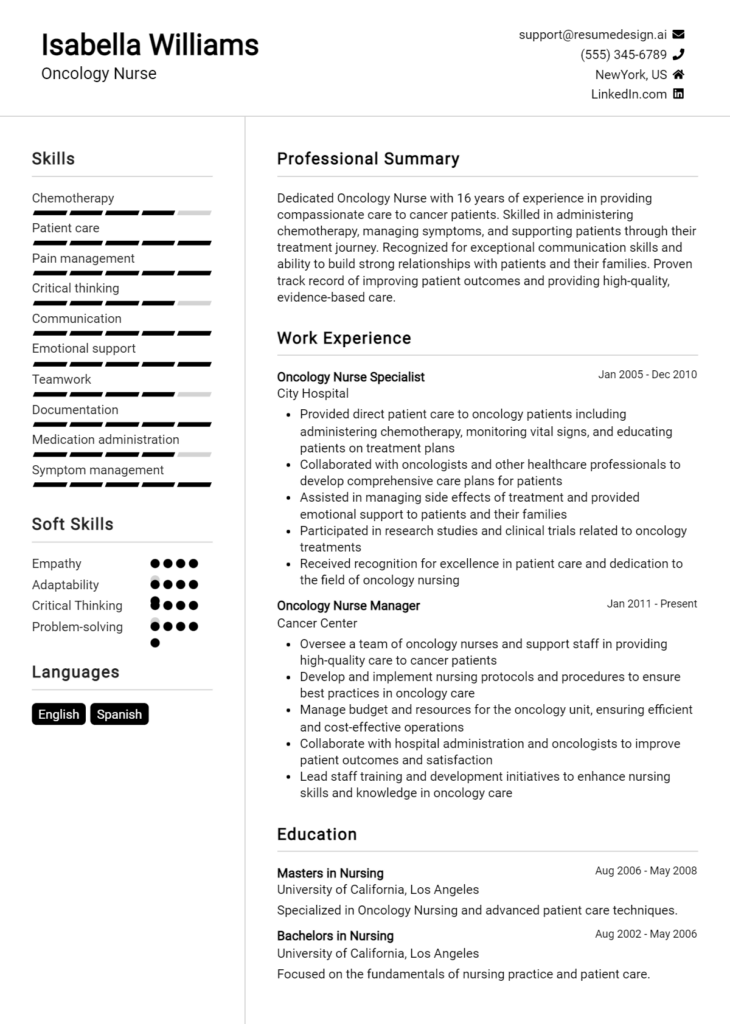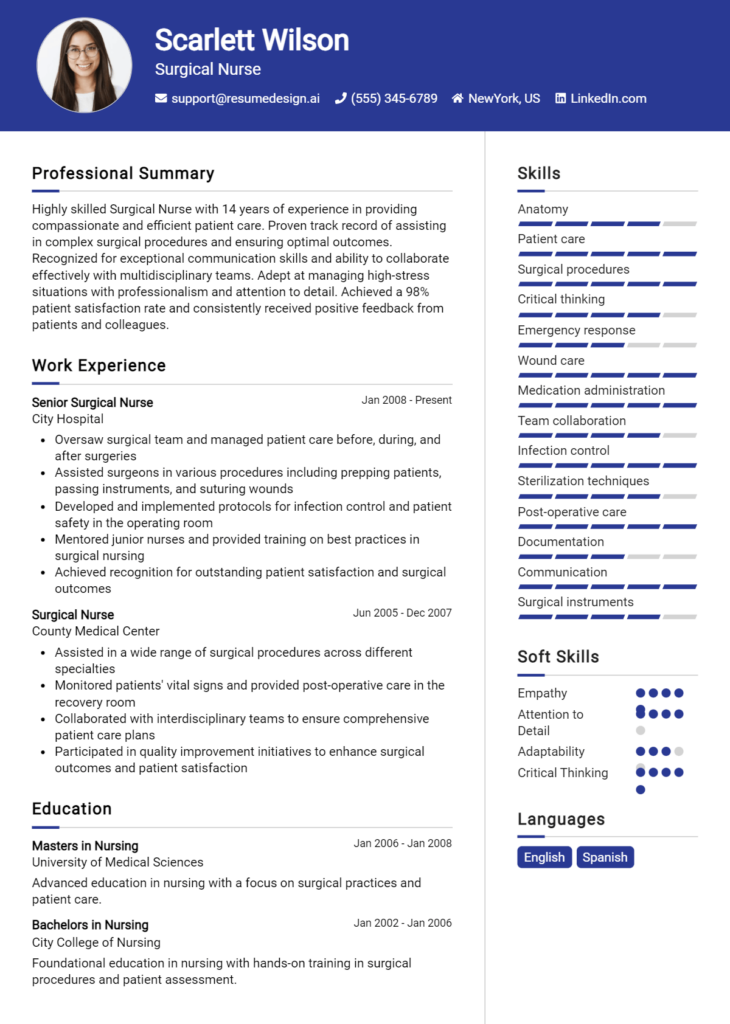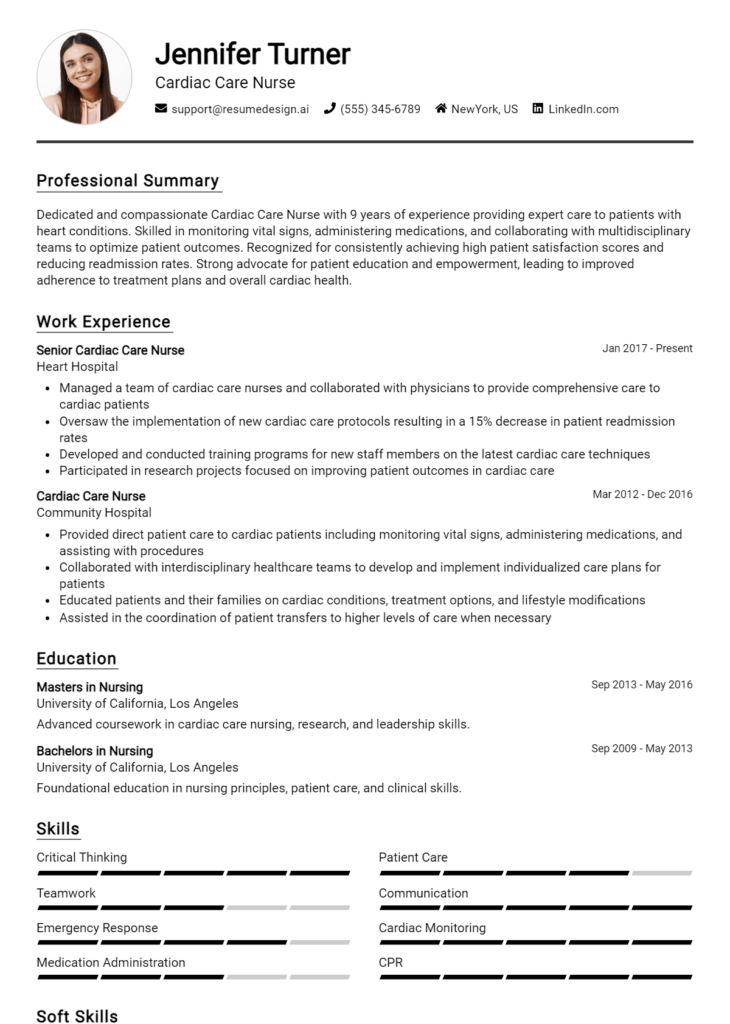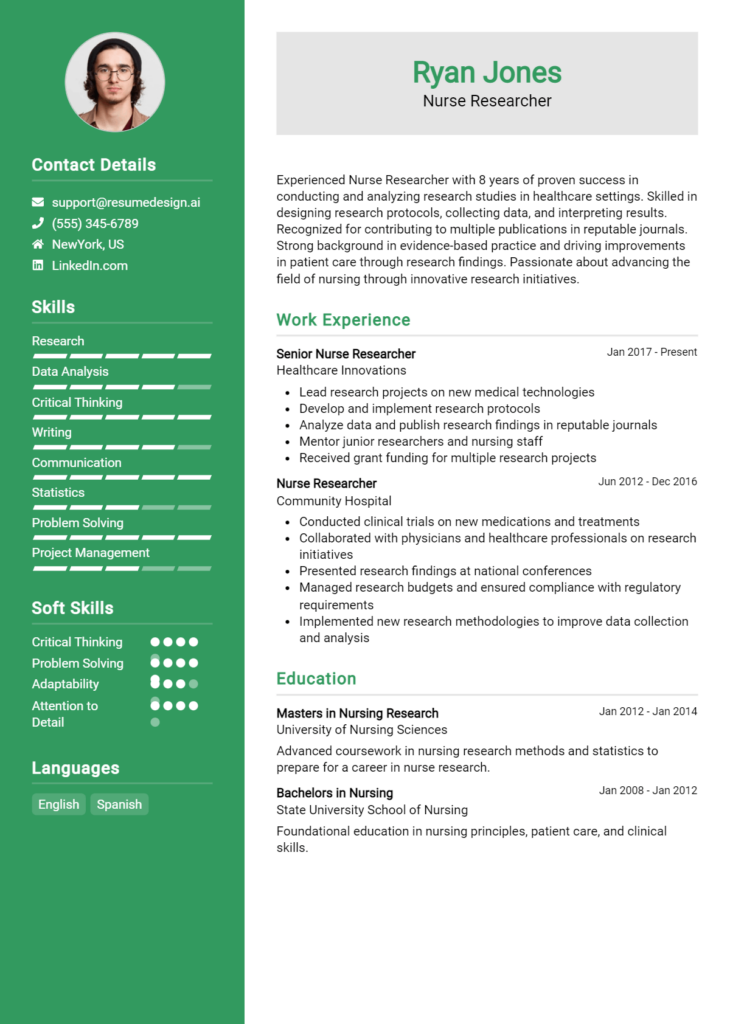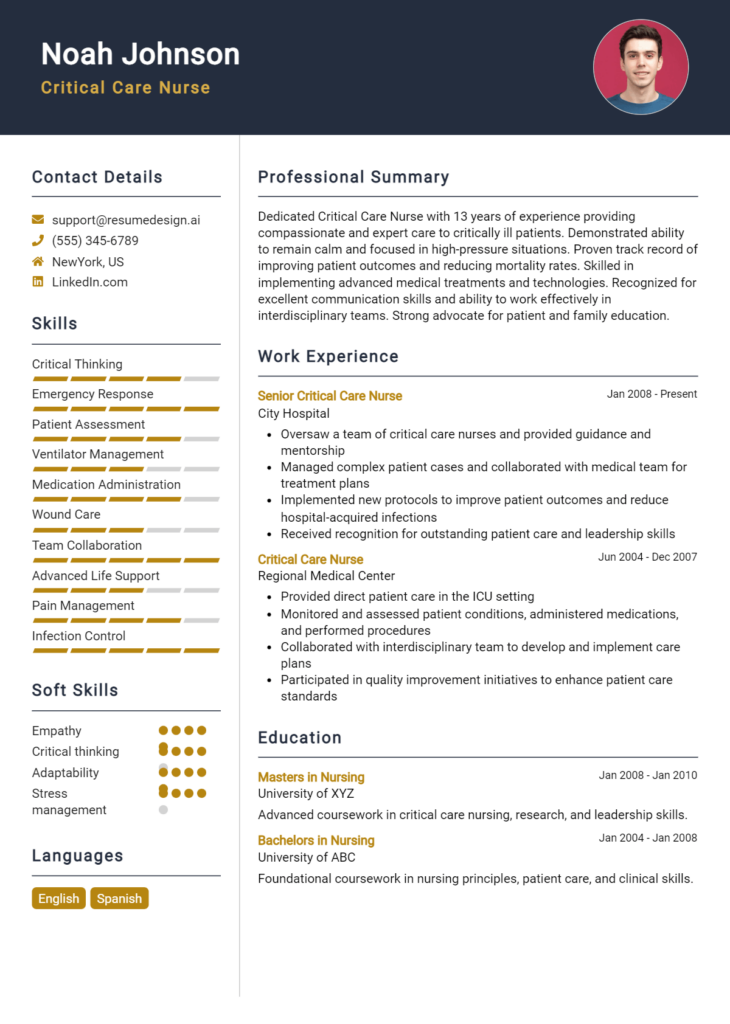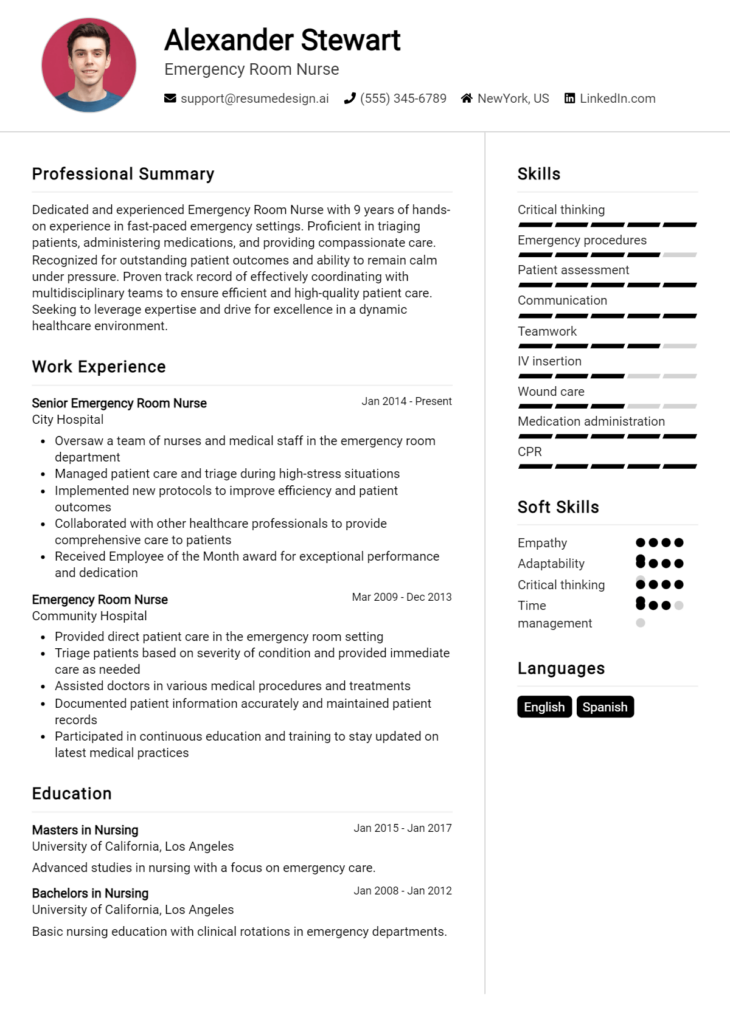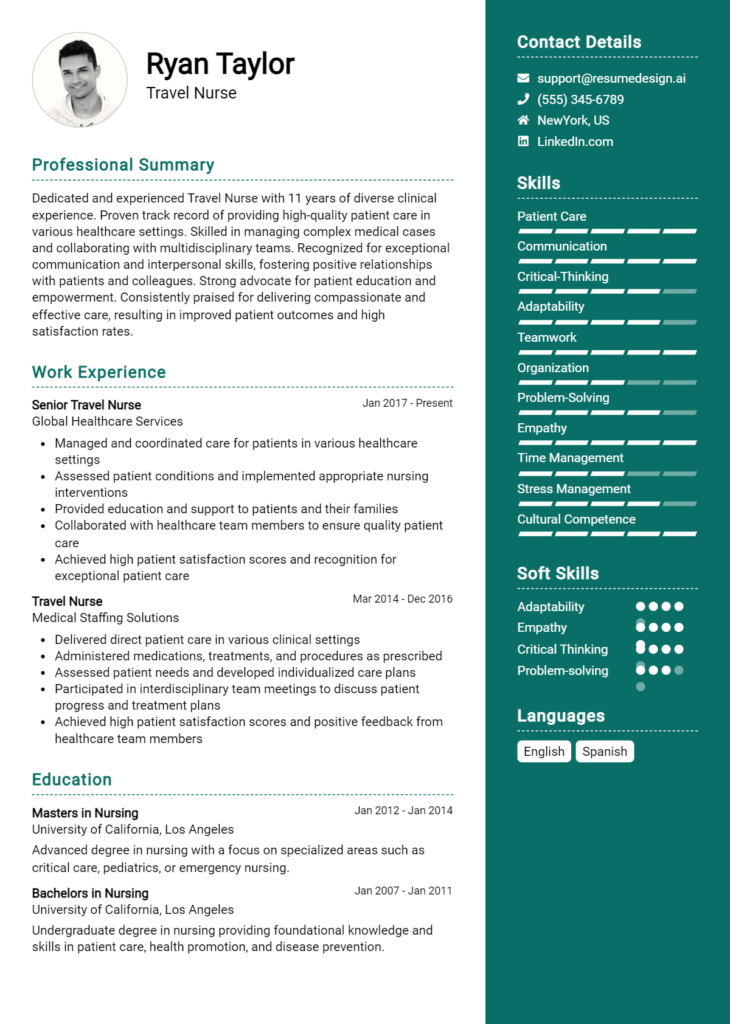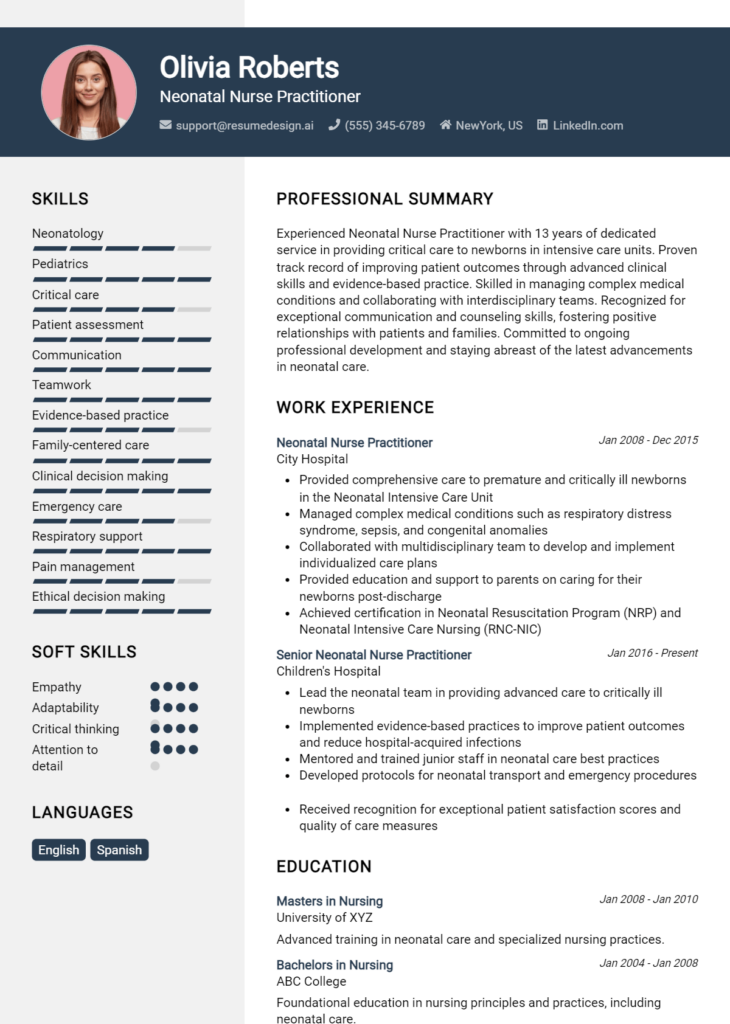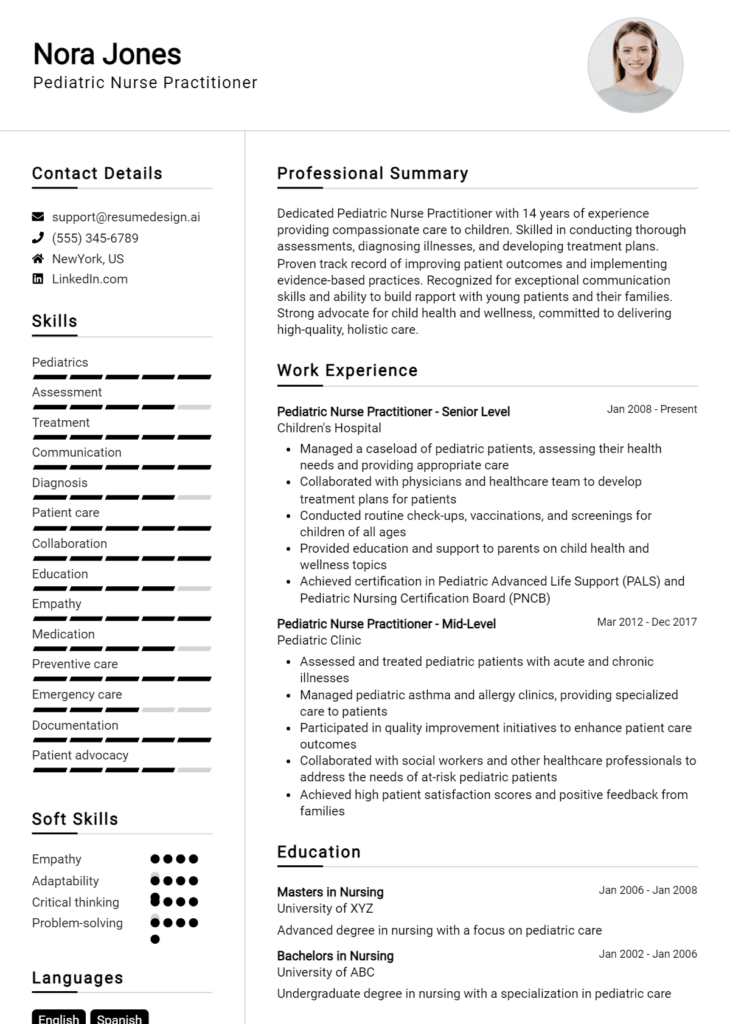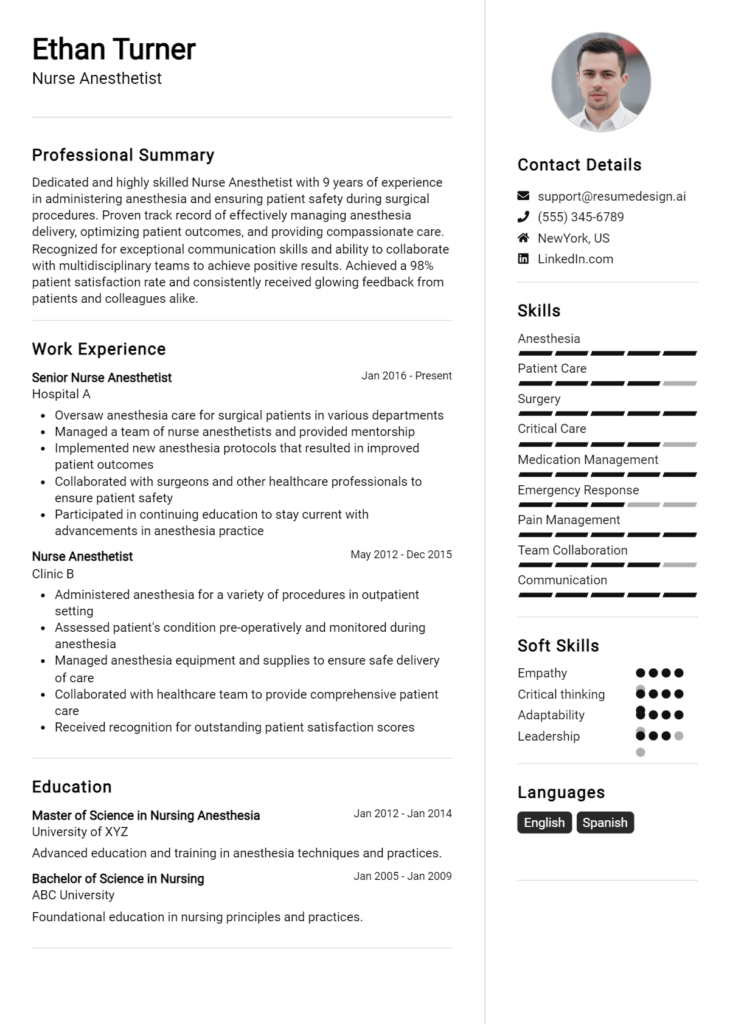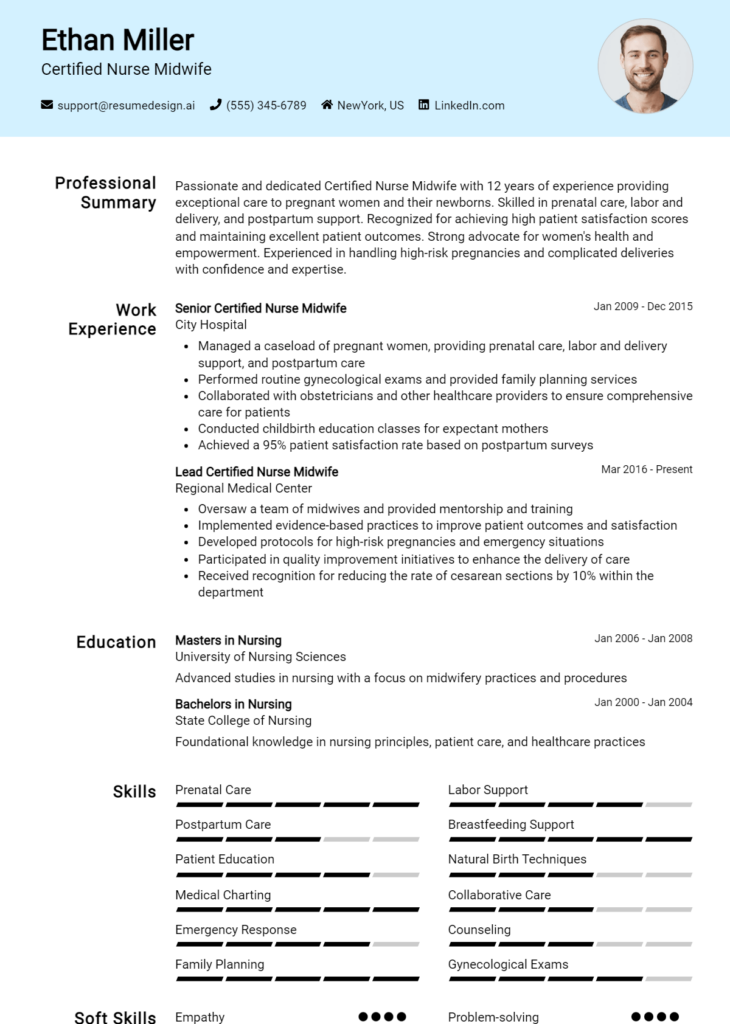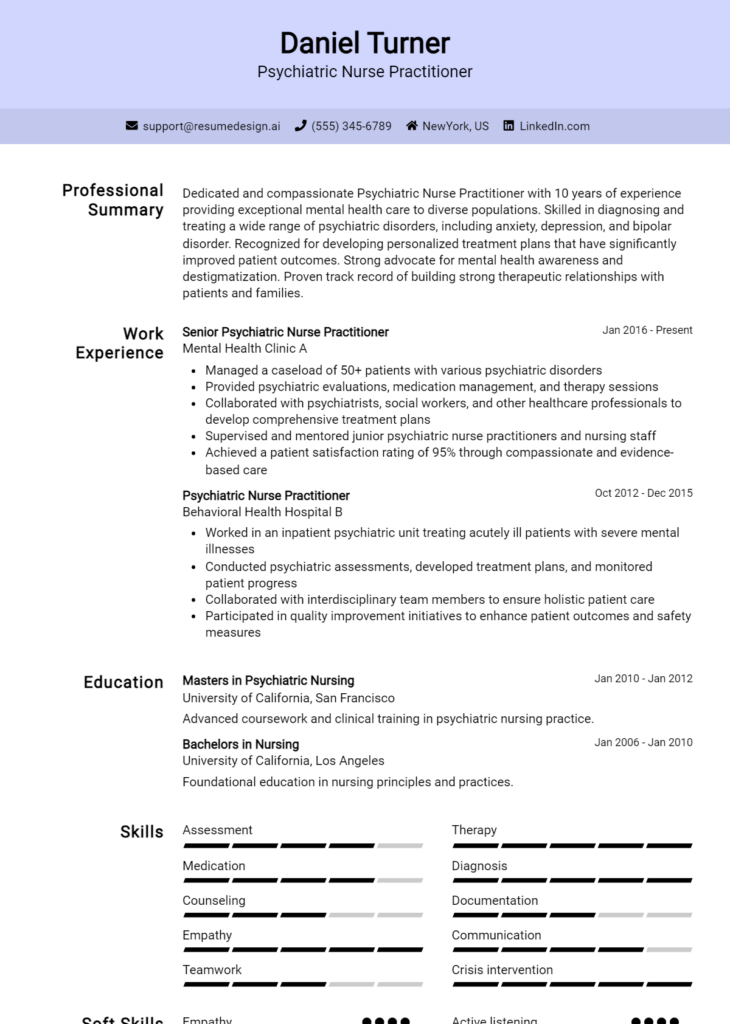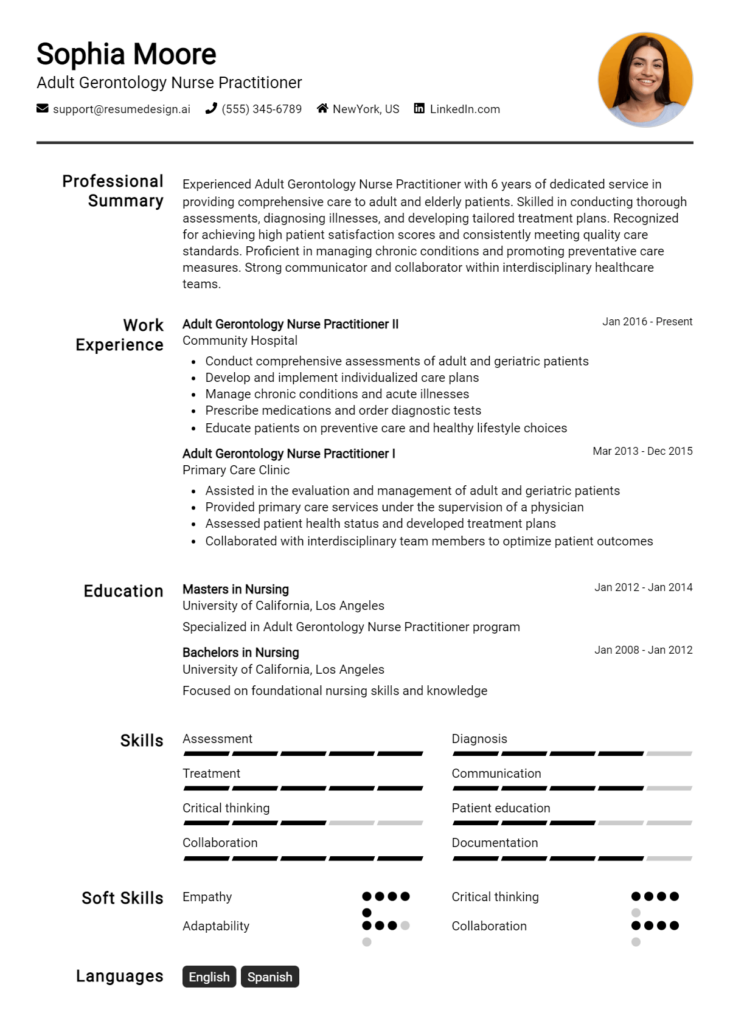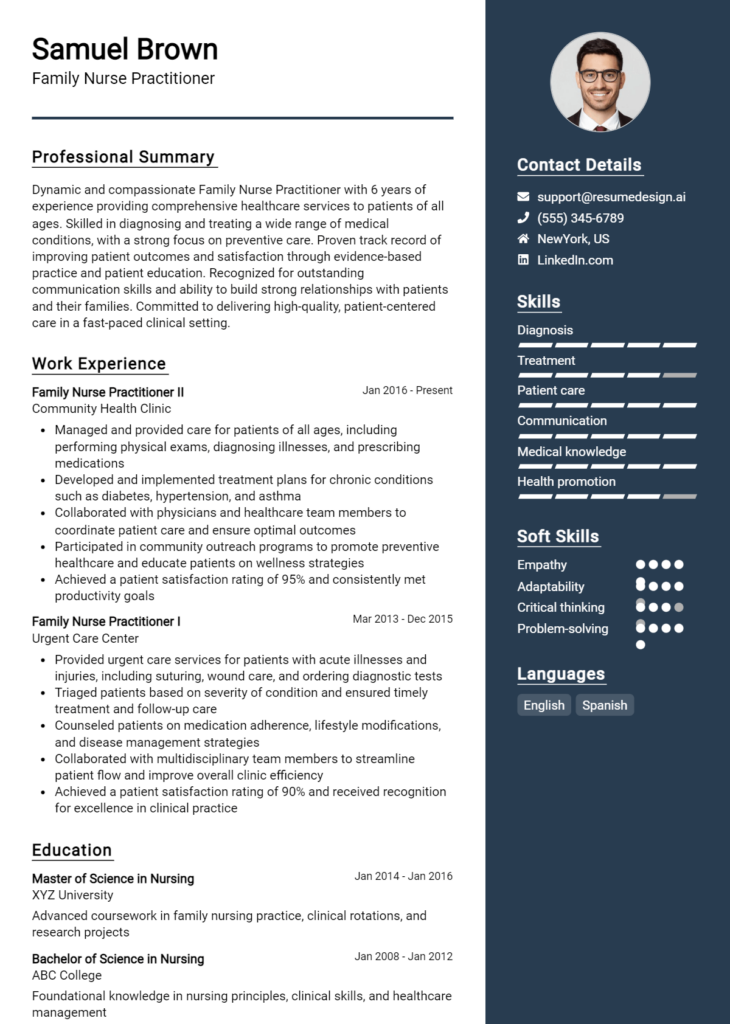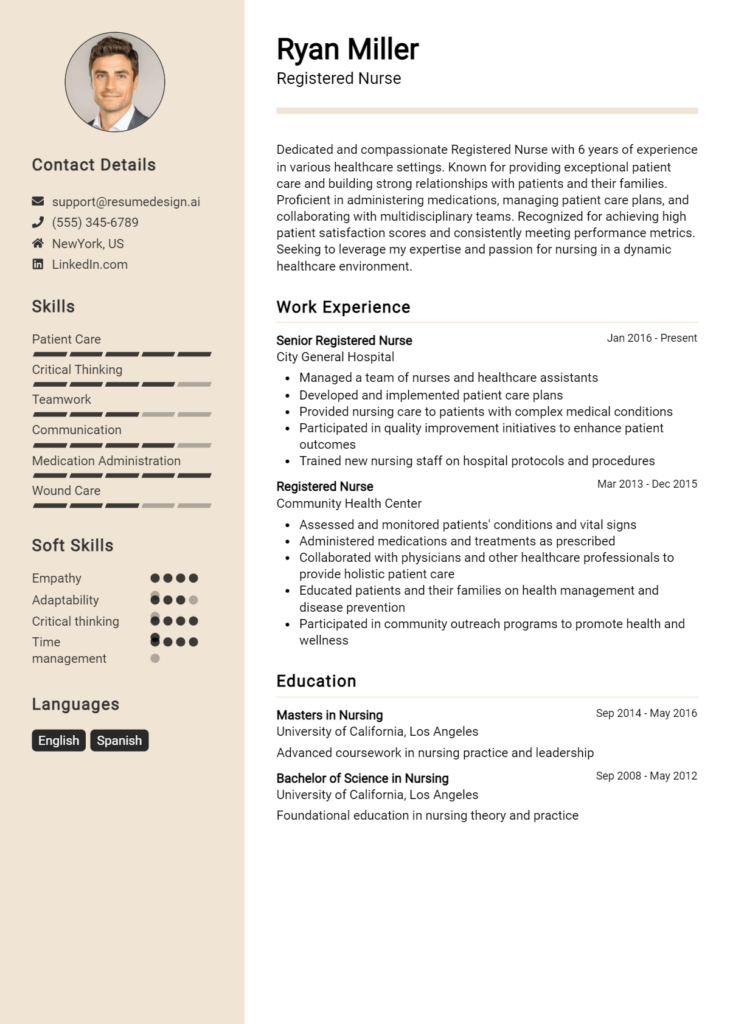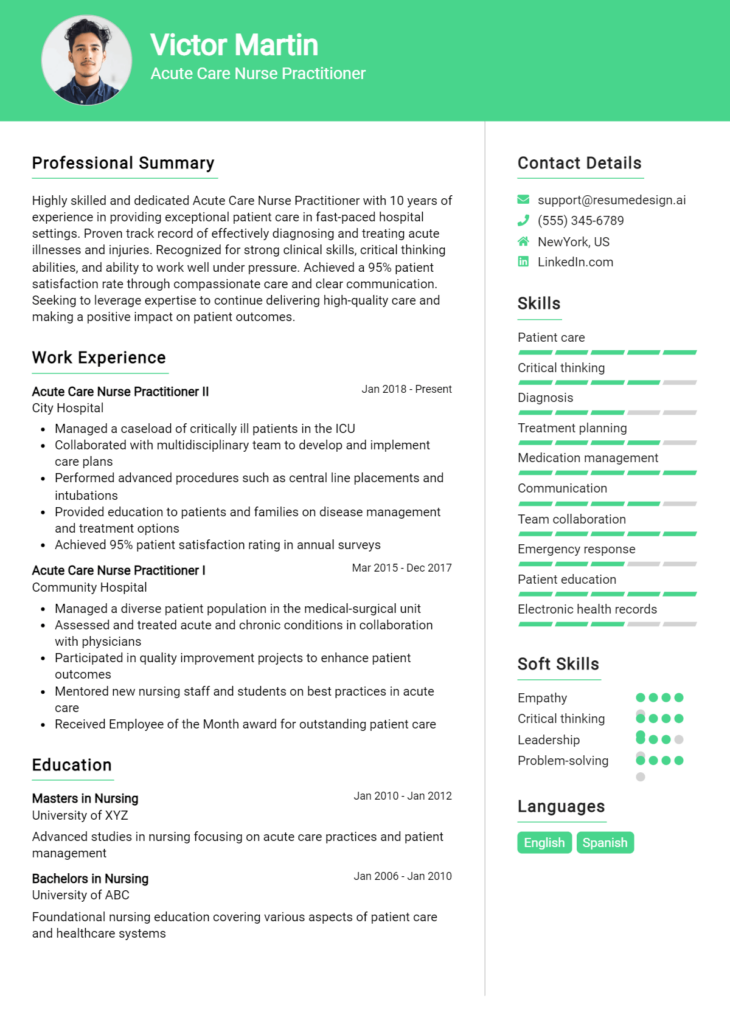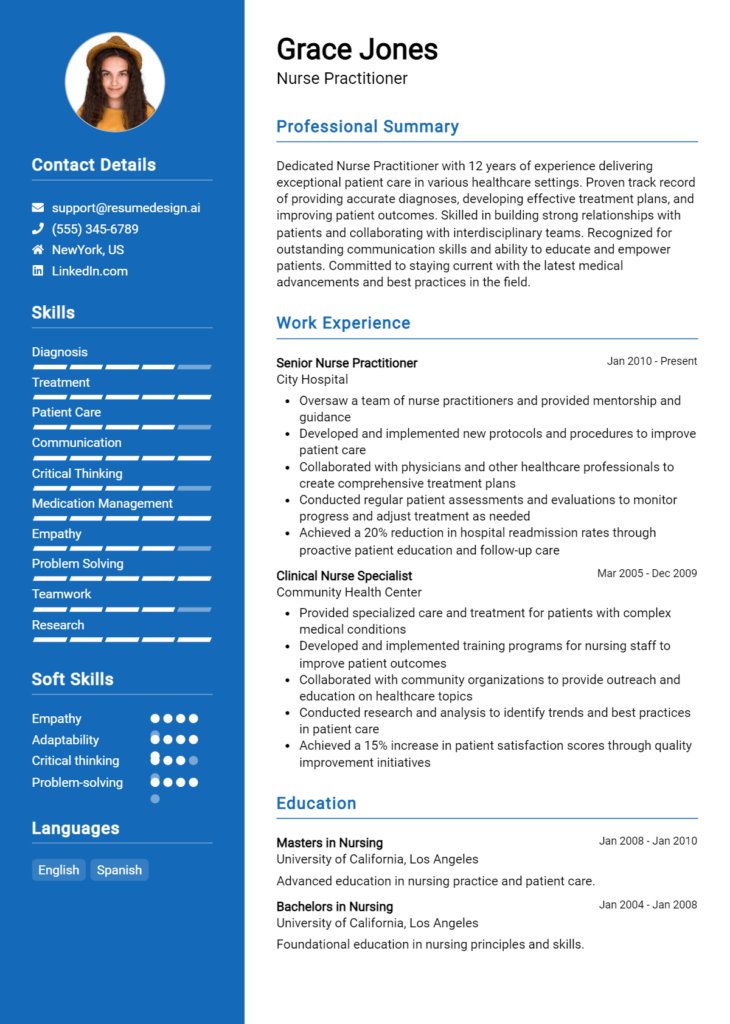Clinical Nurse Specialist Core Responsibilities
A Clinical Nurse Specialist (CNS) plays a pivotal role in healthcare, bridging various departments through expert clinical practice, education, and consultation. Key responsibilities include assessing patient needs, developing care plans, and implementing evidence-based practices. Essential skills encompass strong technical proficiency, operational oversight, and advanced problem-solving abilities, contributing to improved patient outcomes and organizational efficiency. A well-structured resume can effectively showcase these qualifications, highlighting the CNS's impact on achieving overall healthcare goals.
Common Responsibilities Listed on Clinical Nurse Specialist Resume
- Conduct comprehensive patient assessments and evaluations.
- Develop, implement, and monitor individualized care plans.
- Provide clinical education and mentorship to nursing staff.
- Collaborate with multidisciplinary teams to optimize patient care.
- Research and integrate evidence-based practices into clinical protocols.
- Lead quality improvement initiatives to enhance healthcare delivery.
- Manage complex patient cases and provide specialized consultations.
- Educate patients and families on disease management and prevention.
- Participate in policy development and clinical guidelines.
- Utilize data analysis to inform clinical decision-making.
- Advocate for patient needs and improved healthcare practices.
- Stay updated with the latest advancements in nursing and healthcare.
High-Level Resume Tips for Clinical Nurse Specialist Professionals
In the competitive field of nursing, a well-crafted resume is essential for Clinical Nurse Specialist professionals looking to make a meaningful impact in their careers. Often the first impression a candidate makes on a potential employer, the resume serves as a vital marketing tool that must effectively reflect both skills and achievements. It is crucial for candidates to communicate their unique qualifications and experiences to stand out in a crowded job market. This guide will provide practical and actionable resume tips specifically tailored for Clinical Nurse Specialist professionals, helping them to create resumes that capture attention and highlight their expertise.
Top Resume Tips for Clinical Nurse Specialist Professionals
- Tailor your resume to the job description by using keywords and phrases that align with the specific role you are applying for.
- Showcase relevant experience, focusing on roles that highlight your clinical expertise, leadership abilities, and collaboration with interdisciplinary teams.
- Quantify your achievements by including metrics, such as improved patient outcomes, reduced hospital readmission rates, or other measurable impacts of your work.
- Highlight industry-specific skills, such as advanced assessment techniques, patient education, and evidence-based practice methodologies.
- Include certifications and specializations that are pertinent to the Clinical Nurse Specialist role, demonstrating your commitment to professional development.
- Utilize a clean and professional format with clear headings and sections, making it easy for hiring managers to navigate your resume.
- Incorporate a summary statement at the beginning of your resume that succinctly encapsulates your qualifications and career goals.
- Showcase your soft skills, such as communication, critical thinking, and empathy, which are crucial in providing high-quality patient care.
- Keep your resume concise, ideally one to two pages, focusing on the most relevant and impactful information.
By implementing these tips, Clinical Nurse Specialist professionals can significantly increase their chances of landing a job in this specialized field. A well-structured resume not only highlights their qualifications and achievements but also demonstrates their commitment to providing exceptional patient care, making them standout candidates in the eyes of potential employers.
Why Resume Headlines & Titles are Important for Clinical Nurse Specialist
In the competitive field of healthcare, particularly for Clinical Nurse Specialists (CNS), a well-crafted resume headline or title plays a crucial role in capturing the attention of hiring managers. A strong headline not only summarizes a candidate's key qualifications in a succinct phrase but also highlights their unique strengths and expertise. This brief yet impactful statement serves as the first impression, effectively setting the tone for the rest of the resume. By being concise, relevant, and directly related to the job being applied for, a compelling resume title can significantly enhance a candidate's chances of standing out in a crowded applicant pool.
Best Practices for Crafting Resume Headlines for Clinical Nurse Specialist
- Keep it concise—aim for 10-15 words maximum.
- Use specific job titles that align with the position being applied for.
- Highlight key skills or certifications relevant to the CNS role.
- Incorporate quantifiable achievements or experiences when possible.
- Ensure the language is clear and professional, avoiding jargon.
- Include keywords from the job description to improve compatibility with Applicant Tracking Systems (ATS).
- Reflect your unique value proposition as a Clinical Nurse Specialist.
- Avoid vague or overly broad statements that don’t provide context.
Example Resume Headlines for Clinical Nurse Specialist
Strong Resume Headlines
Compassionate Clinical Nurse Specialist with 10+ Years in Pediatric Care
Experienced Clinical Nurse Specialist Specializing in Chronic Disease Management
Dedicated Clinical Nurse Specialist with Proven Track Record in Quality Improvement
Innovative Clinical Nurse Specialist with Expertise in Patient Education and Support
Weak Resume Headlines
Nurse with Experience
Healthcare Professional Seeking Opportunities
Clinical Nurse Specialist
The strong headlines are effective because they are specific, highlight relevant qualifications, and immediately convey the candidate's area of expertise and experience. They utilize key terms that resonate with hiring managers and reflect the applicant's unique contributions to the nursing field. In contrast, the weak headlines fail to impress due to their generic nature and lack of detail, making it difficult for hiring managers to gauge the candidate's fit for the role. By being vague, they do not provide any insight into the candidate's strengths or specializations, ultimately diminishing the impact of the resume.
Writing an Exceptional Clinical Nurse Specialist Resume Summary
A well-crafted resume summary is a critical component for a Clinical Nurse Specialist (CNS) looking to make a strong impression on potential employers. This brief introduction serves as the first point of contact with hiring managers, allowing candidates to quickly showcase their key skills, relevant experience, and notable accomplishments. A strong summary not only captures attention but also sets the tone for the rest of the resume, guiding readers to understand the candidate's unique value proposition. By being concise, impactful, and tailored to the specific job description, candidates can effectively position themselves as ideal contenders for the role.
Best Practices for Writing a Clinical Nurse Specialist Resume Summary
- Quantify achievements: Use specific numbers to demonstrate impact, such as patient outcomes or efficiency improvements.
- Focus on relevant skills: Highlight skills that are directly applicable to the CNS position, such as clinical assessment, patient education, and interdisciplinary collaboration.
- Tailor for the job description: Customize your summary to align with the specific requirements and language of the job you're applying for.
- Keep it concise: Aim for 3-5 sentences that deliver maximum information without unnecessary detail.
- Showcase certifications and specializations: Mention any relevant certifications (e.g., ANCC certification) that enhance your qualifications.
- Use strong action verbs: Start sentences with impactful verbs to convey a sense of assertiveness and confidence.
- Emphasize patient-centered care: Highlight your commitment to patient outcomes and quality care delivery.
- Reflect your professional philosophy: Share a brief insight into your approach to nursing and patient care.
Example Clinical Nurse Specialist Resume Summaries
Strong Resume Summaries
Dynamic Clinical Nurse Specialist with over 8 years of experience in oncology nursing, achieving a 30% reduction in patient readmission rates through innovative care plans and patient education initiatives.
Compassionate and detail-oriented Clinical Nurse Specialist specializing in pediatric cardiology, recognized for implementing evidence-based practices that improved patient satisfaction scores by 25% over two years.
Results-driven Clinical Nurse Specialist with a proven track record in critical care, enhancing team performance by 40% through effective training and mentorship programs while maintaining a 98% patient safety record.
Dedicated Clinical Nurse Specialist with expertise in chronic disease management, successfully leading interdisciplinary teams that reduced hospital stays by an average of 3 days, resulting in significant cost savings.
Weak Resume Summaries
Experienced nurse looking for a new position where I can use my skills.
Clinical Nurse Specialist with a background in various healthcare settings, seeking to contribute to patient care.
The strong resume summaries stand out due to their quantifiable achievements, specific skills, and direct relevance to the Clinical Nurse Specialist role, showcasing the candidate's contributions and results in previous positions. In contrast, the weak summaries are vague and generic, lacking concrete examples of how the candidate has made an impact in their previous roles, which diminishes their overall effectiveness in catching the attention of hiring managers.
Work Experience Section for Clinical Nurse Specialist Resume
The work experience section of a Clinical Nurse Specialist (CNS) resume is crucial as it serves as a testament to the candidate's technical skills, leadership abilities, and commitment to delivering high-quality patient care. This section not only highlights the applicant's clinical expertise but also demonstrates their capacity to manage teams, implement evidence-based practices, and improve patient outcomes. By quantifying achievements and aligning experiences with industry standards, candidates can effectively showcase their value to potential employers, making a compelling case for their candidacy in a competitive field.
Best Practices for Clinical Nurse Specialist Work Experience
- Use action verbs to start each bullet point, emphasizing your contributions and initiatives.
- Quantify achievements with specific metrics, such as improved patient outcomes, reduced hospital readmission rates, or increased patient satisfaction scores.
- Highlight collaborative efforts with interdisciplinary teams to showcase your ability to work effectively with others.
- Focus on relevant technical skills, including specialty certifications or advanced clinical procedures you have mastered.
- Tailor your experience to align with the job description, emphasizing the most relevant aspects of your background.
- Include leadership roles or projects that demonstrate your ability to mentor and guide other healthcare professionals.
- Showcase initiatives you have led that have positively impacted healthcare delivery or patient care standards.
- Keep descriptions concise and focused, ensuring clarity and impact in your statements.
Example Work Experiences for Clinical Nurse Specialist
Strong Experiences
- Led a multidisciplinary team that achieved a 30% reduction in patient readmission rates over one year through enhanced discharge planning and patient education.
- Implemented a new evidence-based pain management protocol that increased patient satisfaction scores by 25% within six months.
- Mentored and trained 15 nursing staff on advanced wound care techniques, resulting in a 40% decrease in wound infection rates.
- Collaborated with pharmacy to optimize medication management, leading to a 20% decrease in adverse drug events.
Weak Experiences
- Assisted in patient care tasks and managed some duties.
- Participated in meetings to discuss patient care improvements.
- Worked on a project related to nursing practices.
- Provided support to the nursing team in various activities.
The examples listed as strong experiences are considered impactful because they provide specific metrics and outcomes that demonstrate the candidate's effectiveness in their role as a Clinical Nurse Specialist. They highlight leadership, collaboration, and tangible improvements in patient care, showcasing the candidate's value in a measurable way. In contrast, the weak experiences are vague and lack quantifiable results or clear contributions, making it difficult for potential employers to assess the candidate's capabilities and impact within their previous roles.
Education and Certifications Section for Clinical Nurse Specialist Resume
The education and certifications section of a Clinical Nurse Specialist (CNS) resume is crucial in showcasing a candidate's academic background and commitment to professional development. This section not only highlights relevant degrees and industry-recognized certifications but also emphasizes continuous learning efforts essential in the dynamic field of healthcare. By providing detailed information on relevant coursework, specialized training, and certifications, candidates can significantly enhance their credibility and demonstrate alignment with the CNS role, ultimately making a compelling case for their qualifications to potential employers.
Best Practices for Clinical Nurse Specialist Education and Certifications
- List your highest degree first, including the degree type, major, and institution.
- Include relevant certifications, such as the Clinical Nurse Specialist certification from recognized bodies.
- Highlight any specialized training or workshops that are pertinent to the CNS role.
- Provide specific coursework that aligns with the job requirements, particularly in advanced clinical practice.
- Keep the section concise but detailed enough to demonstrate expertise.
- Use clear formatting to enhance readability, making it easy for hiring managers to find key information.
- Update the section regularly to reflect the most current credentials and educational achievements.
- Consider including honors or awards related to academic achievements or professional development.
Example Education and Certifications for Clinical Nurse Specialist
Strong Examples
- Master of Science in Nursing (MSN), Clinical Nurse Specialist, University of Health Sciences, 2021
- Certified Clinical Nurse Specialist (CCNS), American Nurses Credentialing Center, 2022
- Advanced Pharmacology for Clinical Practice, XYZ Institute, 2020
- Graduate Certificate in Adult-Gerontology Clinical Nurse Specialist, ABC University, 2021
Weak Examples
- Bachelor of Arts in Psychology, University of Non-Health Studies, 2015
- Certification in Basic Life Support (BLS), expired 2020
- Diploma in Nursing (outdated curriculum), Community College, 2012
- Online Course in General Health Tips, 2021
The strong examples listed are considered effective because they directly relate to the qualifications and responsibilities of a Clinical Nurse Specialist, showcasing relevant educational achievements and recognized certifications that enhance professional credibility. In contrast, the weak examples demonstrate a lack of relevance to the CNS role, featuring outdated or unrelated qualifications that do not contribute to the candidate's expertise in the field.
Top Skills & Keywords for Clinical Nurse Specialist Resume
In the competitive field of healthcare, a well-crafted resume for a Clinical Nurse Specialist (CNS) is crucial for standing out among applicants. The skills highlighted in your resume directly reflect your qualifications and expertise, and they play a vital role in demonstrating your ability to deliver high-quality patient care and effective clinical leadership. A strong skill set not only enhances your professional appeal but also assures potential employers that you possess the necessary competencies to excel in a specialized nursing role. By including both hard and soft skills, you can provide a comprehensive picture of your capabilities and your commitment to advancing healthcare practices.
Top Hard & Soft Skills for Clinical Nurse Specialist
Soft Skills
- Excellent communication
- Empathy and compassion
- Critical thinking
- Leadership abilities
- Team collaboration
- Problem-solving skills
- Adaptability to change
- Time management
- Conflict resolution
- Patient advocacy
- Emotional intelligence
- Active listening
- Mentoring and coaching
Hard Skills
- Advanced clinical assessment
- Evidence-based practice
- Knowledge of disease management
- Patient education techniques
- Research and data analysis
- Quality improvement processes
- Clinical documentation proficiency
- Familiarity with electronic health records (EHR)
- Medication management
- Specialty certification (e.g., diabetes, heart failure)
- Regulatory compliance
- Infection control protocols
- Health promotion strategies
- Advanced life support certification
For more information on how to enhance your resume with relevant skills and showcase your work experience, consider exploring additional resources that can help refine your application.
Stand Out with a Winning Clinical Nurse Specialist Cover Letter
Dear [Hiring Manager's Name],
I am writing to express my interest in the Clinical Nurse Specialist position at [Hospital/Organization Name] as advertised on [where you found the job posting]. With a Master’s degree in Nursing and over [X years] of experience in [specific specialty, e.g., cardiology, oncology], I have developed a comprehensive skill set that aligns well with the responsibilities of this role. My passion for improving patient outcomes and my commitment to evidence-based practice have driven me to seek a position where I can make a significant impact in patient care and nursing education.
In my previous role at [Previous Employer Name], I successfully implemented a new protocol that reduced hospital readmission rates for heart failure patients by [X%]. This initiative not only enhanced patient satisfaction but also demonstrated my ability to lead interdisciplinary teams in a clinical setting. As a Clinical Nurse Specialist, I am adept at conducting in-depth patient assessments, developing tailored care plans, and providing mentorship to nursing staff. I am particularly proud of my work in [specific project or initiative], which showcased my dedication to continuous improvement and my ability to adapt to the evolving healthcare landscape.
I am excited about the opportunity to bring my expertise in [specific skills or areas of focus] to the talented team at [Hospital/Organization Name]. I am impressed by your commitment to [specific value or initiative of the organization], and I am eager to contribute to your mission of delivering high-quality, patient-centered care. I believe my strong clinical background and my strategic approach to problem-solving will be valuable assets to your team.
Thank you for considering my application. I look forward to the opportunity to discuss how my experience and vision can benefit [Hospital/Organization Name]. Please feel free to contact me at [Your Phone Number] or [Your Email Address] to schedule a conversation.
Sincerely,
[Your Name]
Common Mistakes to Avoid in a Clinical Nurse Specialist Resume
When crafting a resume for a Clinical Nurse Specialist (CNS) position, it's essential to present your qualifications and experience effectively. Many candidates make common mistakes that can undermine their chances of landing an interview. Understanding these pitfalls can help you create a compelling resume that showcases your skills and expertise in nursing. Here are some common mistakes to avoid:
Generic Objective Statements: Using a vague or generic objective can make your resume forgettable. Tailor your objective to reflect your specific career goals and how they align with the CNS role.
Overloading with Jargon: While it's important to demonstrate your knowledge, excessive medical jargon can confuse hiring managers. Use clear language that highlights your expertise without alienating non-medical readers.
Neglecting Accomplishments: Focusing solely on job duties instead of your achievements can underplay your impact. Highlight specific accomplishments using quantifiable results where possible, such as improved patient outcomes or enhanced care protocols.
Ignoring Keywords: Many employers use applicant tracking systems (ATS) to screen resumes. Failing to include relevant keywords from the job description can mean your resume gets overlooked. Ensure you incorporate these terms naturally into your resume.
Inconsistent Formatting: A disorganized or inconsistent format can make your resume difficult to read. Use a clean, professional layout with uniform font styles and sizes to enhance readability and visual appeal.
Not Tailoring the Resume to the Job: Using a one-size-fits-all resume can be detrimental. Customize your resume for each position you apply for, emphasizing the skills and experiences that are most relevant to the specific CNS role.
Omitting Continuing Education: As healthcare is an ever-evolving field, failing to mention ongoing education or certifications can suggest stagnation. Include any relevant courses, certifications, or training to demonstrate your commitment to professional development.
Too Lengthy or Too Short: A resume that is either too long or too brief can be a red flag. Aim for a concise, focused document that effectively summarizes your qualifications—typically one to two pages in length is ideal.
Conclusion
As we have explored the vital role of a Clinical Nurse Specialist (CNS), it's clear that this position not only requires advanced clinical skills but also leadership, advocacy, and a commitment to patient care. A CNS plays a crucial role in improving patient outcomes, guiding nursing practices, and influencing healthcare policies. Their expertise in specialized areas allows them to impact both individual patients and the broader healthcare system significantly.
In summary, the key competencies for a Clinical Nurse Specialist include advanced clinical knowledge, strong communication skills, and a dedication to ongoing education. The demand for CNS professionals continues to grow, making it essential for aspiring candidates to present themselves effectively in their job applications.
Now is the perfect time to review your Clinical Nurse Specialist resume and ensure it highlights your unique qualifications and experiences. Stand out in a competitive job market by utilizing tools designed to enhance your application. Check out resume templates to find a format that suits your style, use the resume builder for a polished finish, and draw inspiration from resume examples that showcase successful CNS professionals. Don't forget to prepare a compelling introduction with our cover letter templates that will complement your resume.
Take action today and give your application the boost it needs to land that Clinical Nurse Specialist position!

